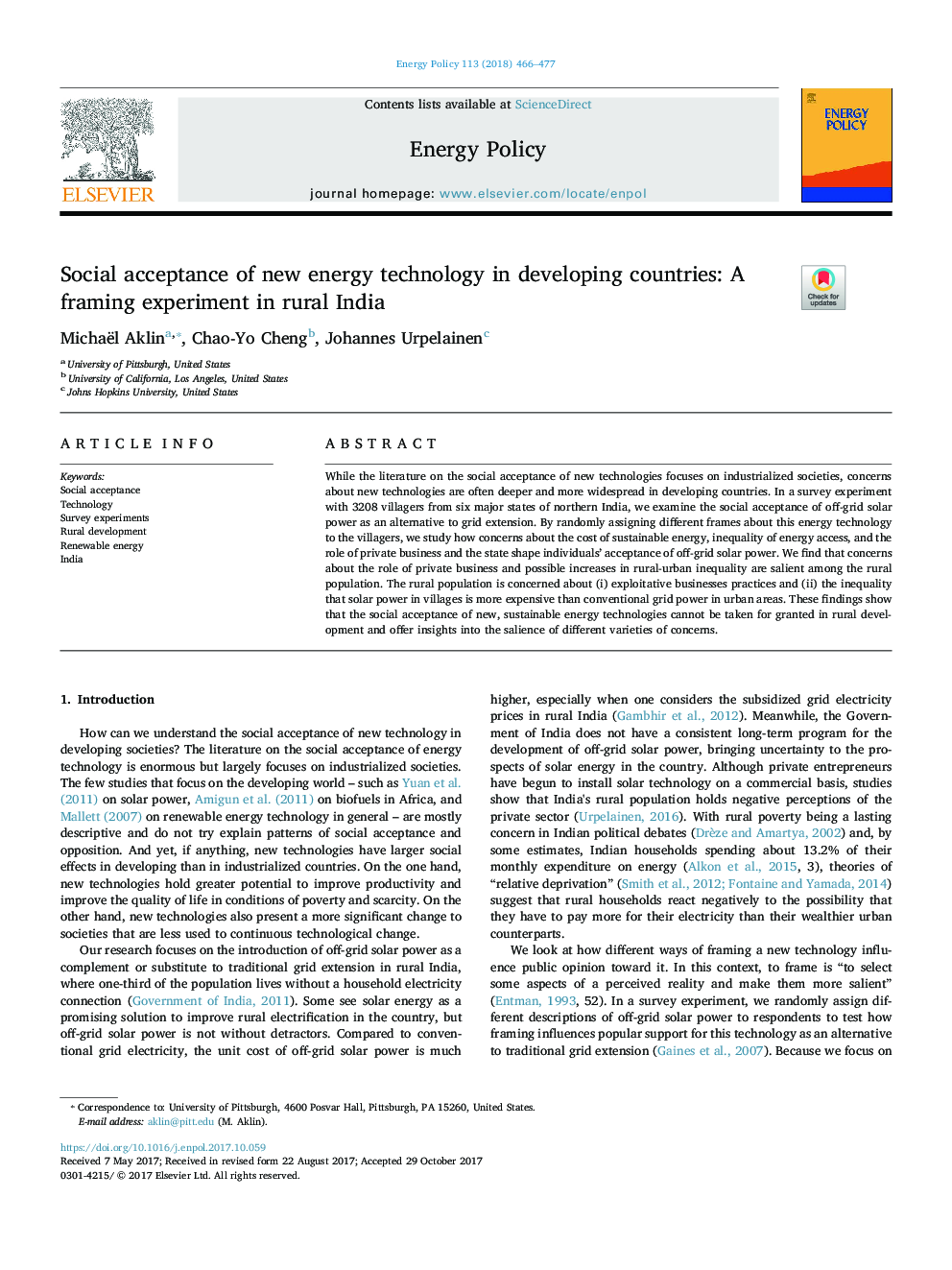| Article ID | Journal | Published Year | Pages | File Type |
|---|---|---|---|---|
| 7398054 | Energy Policy | 2018 | 12 Pages |
Abstract
While the literature on the social acceptance of new technologies focuses on industrialized societies, concerns about new technologies are often deeper and more widespread in developing countries. In a survey experiment with 3208 villagers from six major states of northern India, we examine the social acceptance of off-grid solar power as an alternative to grid extension. By randomly assigning different frames about this energy technology to the villagers, we study how concerns about the cost of sustainable energy, inequality of energy access, and the role of private business and the state shape individuals' acceptance of off-grid solar power. We find that concerns about the role of private business and possible increases in rural-urban inequality are salient among the rural population. The rural population is concerned about (i) exploitative businesses practices and (ii) the inequality that solar power in villages is more expensive than conventional grid power in urban areas. These findings show that the social acceptance of new, sustainable energy technologies cannot be taken for granted in rural development and offer insights into the salience of different varieties of concerns.
Related Topics
Physical Sciences and Engineering
Energy
Energy Engineering and Power Technology
Authors
Michaël Aklin, Chao-Yo Cheng, Johannes Urpelainen,
